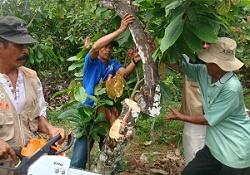Can Public-Private Partnerships Actually Benefit the Poor?

Event Description
Contextual changes characterized by the globalization of agricultural value chains not only influence patterns of production, competition, and trade; they also offer potential for public-private partnerships (PPPs) to achieve development objectives. These PPPs often result in economic growth. However, they have not always brought about significant and sustained benefits for the poor.
Drawing on the concepts of global value chains, representatives from Duke University’s Center on Globalization, Governance & Competitiveness (CGGC) will examine evidence contributing to three main debates surrounding the potential of PPPs to truly bring about inclusive development:
- The alignment of business and pro-poor development interests;
- The actors and institutions that determine how the system works; and,
- The outcomes that can be achieved.
This panel will present research findings on USAID-supported partnerships and upgrading trajectories experienced in the cocoa sector in Indonesia, the coffee sector in Rwanda, and the horticulture sector in Kenya. This research examines what historical PPPs can teach us about how to use this approach to actually benefit the poor.
Presenters
Gary Gereffi, Center on Globalization, Governance & Competitiveness
Ajmal Abdulsamad, Center on Globalization, Governance & Competitiveness
Shawn Stokes, Center on Globalization, Governance & Competitiveness
Registration
